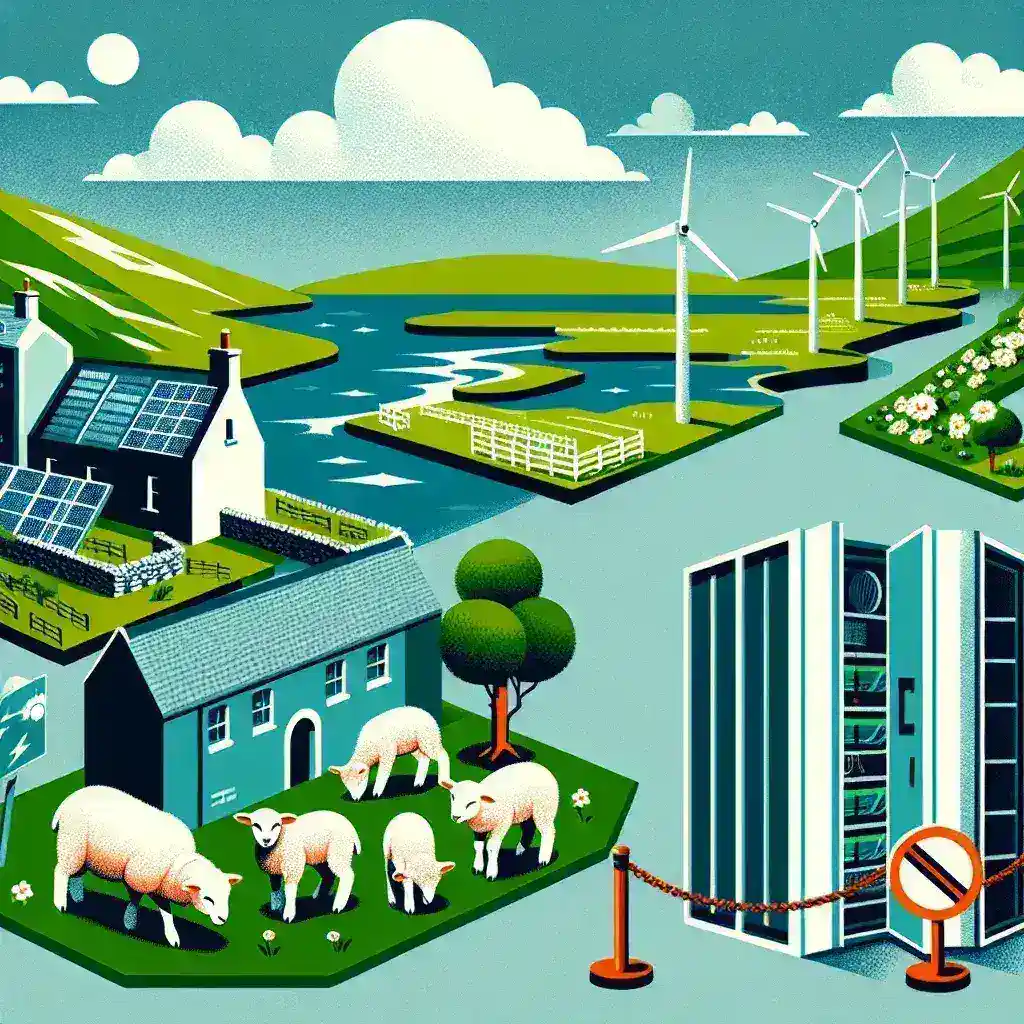Introduction
The Irish government has recently taken a significant step by imposing a ban on new data center builds until 2028. This decision has sparked widespread discussions and debates across various industries, particularly in technology and energy sectors. As data centers consume massive amounts of energy, the government’s move reflects a growing concern regarding sustainability and energy resources in Ireland. In this article, we will delve into the reasons behind this ban, examine its implications, and explore what the future holds for Ireland’s data center landscape.
The Rationale Behind the Ban
1. Growing Energy Demand
Data centers are known for their substantial energy consumption. In Ireland, the demand for energy has been steadily increasing, driven largely by the tech industry. According to the Irish Renewable Energy Association, data centers alone could account for up to 30% of Ireland’s electricity demand by 2030. This alarming statistic has prompted the government to pause new constructions to reassess the energy supply and demand situation.
2. Environmental Concerns
With climate change becoming a pressing global issue, Ireland is committed to reducing its carbon footprint. Data centers, primarily powered by fossil fuels, contribute significantly to greenhouse gas emissions. The government’s ban aligns with its environmental goals, aiming to transition towards renewable energy sources and sustainable practices. This decision highlights the necessity for a more eco-conscious approach as Ireland strives to meet its climate targets.
3. Infrastructure Limitations
The existing electrical infrastructure in Ireland faces challenges in supporting the rapid expansion of data centers. Many regions, particularly rural areas, lack the necessary capacity to handle increased energy loads. The government needs time to enhance and upgrade the infrastructure to facilitate future energy requirements effectively.
Implications of the Ban
1. Economic Impact
The data center sector is a significant contributor to the Irish economy, generating jobs and attracting foreign investment. However, the ban could hinder growth in this sector in the short term. Companies looking to establish data centers may be deterred by the delay, potentially opting for other countries with more favorable conditions. This could lead to a loss of investment and employment opportunities within Ireland.
2. Temporary Relief for Energy Supply
While the ban poses challenges, it may also provide temporary relief for the strained energy supply. By halting new data center builds, the government can focus on improving energy efficiency and infrastructure, ensuring that existing facilities operate sustainably without overwhelming the energy grid.
3. Encouraging Technology Upgrades
This pause offers an opportunity for data center operators to invest in energy-efficient technologies. The focus can shift towards upgrading existing systems to reduce energy consumption and carbon emissions. Innovations in cooling systems, renewable energy integration, and smart grid technology can play a crucial role in making data centers more sustainable.
Future Predictions
1. Renewable Energy Transition
The ban serves as a catalyst for Ireland to accelerate its transition to renewable energy sources. The government is likely to invest heavily in wind and solar energy projects, aligning its energy strategy with environmental objectives. This transition could foster a more resilient energy system that meets the demands of both data centers and the broader population.
2. Strategic Planning for Data Centers
In the long term, the government can use this period to strategically plan for future data center developments. By implementing regulations that prioritize sustainability, energy efficiency, and infrastructure readiness, Ireland can position itself as a leader in eco-friendly data center operations.
3. Enhanced Collaboration with Tech Companies
To navigate the challenges posed by the ban, the government may foster collaborations with tech companies. Engaging stakeholders in discussions about energy solutions and sustainable practices can lead to innovative strategies that benefit both the economy and the environment.
Conclusion
The ban on new data center builds in Ireland until 2028 marks a pivotal moment in the country’s approach to energy and sustainability. While there are potential economic drawbacks, the long-term implications may pave the way for a more sustainable and resilient energy future. As Ireland navigates these challenges, the collaboration between government, industry, and consumers will be vital in achieving a balanced approach that supports technological growth while prioritizing environmental stewardship.



